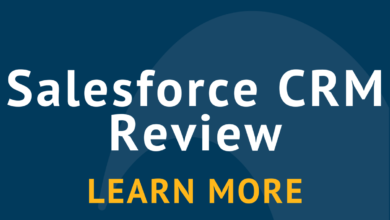Alphabet’s Eyes on HubSpot: The Deal Faces Regulatory Scrutiny

Reports of Alphabet Inc. (NASDAQ: GOOG) the parent company of Google is considering a bid for inbound marketing and CRM software provider HubSpot (NYSE: HUBS) have ignited a firestorm of speculation and analysis. The potential deal, which would be Alphabet’s largest acquisition to date, has sparked intense discussion on potential strategic synergies, valuation challenges and, most importantly, antitrust scrutiny looming over tech sector mergers. Will the Biden administration’s stance on Big Tech block a deal of this magnitude, ultimately setting a precedent for future tech mergers?
Understanding the Tech Giants
Alphabet Inc. is a multinational technology conglomerate with significant holdings and influence in multiple sectors. Its flagship product, Google Search, maintains a dominant market share, while the video-sharing platform YouTube continues to capture substantial global viewership. These platforms, alongside others, form a massive digital advertising network that is a core revenue driver for the company. Alphabet has also demonstrated a solid commitment to innovation, investing heavily in developing cloud computing infrastructure, artificial intelligence technologies and self-driving car initiatives.
HubSpot, while significantly smaller in scale than Alphabet, has established a firm foothold in the fast-growing market for customer relationship management (CRM) software. The company specializes in providing solutions designed to meet the needs of small and medium-sized businesses (SMBs). HubSpot’s core philosophy rests on an inbound marketing approach, where companies create informative content in various formats (blog posts, videos, etc.) to attract potential customers organically. This strategy is less intrusive than traditional outbound marketing methods and has gained widespread adoption among SMBs. This approach complements HubSpot’s CRM offerings, which streamline customer data management, sales processes and marketing automation.
Why HubSpot Might Tempt Alphabet
An acquisition of HubSpot could offer Alphabet several strategic advantages. First and foremost, it would mark a bold entry into the rapidly growing customer relationship management (CRM) industry. Market projections indicate substantial growth potential within the CRM sector, promising Alphabet a lucrative new revenue stream. Additionally, HubSpot’s expertise in inbound marketing strategies could prove invaluable for attracting a new segment of businesses to Google’s advertising platform, particularly those that may not have considered traditional advertising channels.
The integration of HubSpot’s services into Google Cloud could also be beneficial. This move can potentially expand the existing customer base of Google’s cloud computing division. Furthermore, increased competition in the cloud market could further push Alphabet to innovate, potentially leading to the development of new service offerings to challenge industry leaders like Microsoft (NASDAQ: MSFT) (Azure) and Amazon (NASDAQ: AMZN) (AWS).
For HubSpot, joining forces with Alphabet could unlock a wealth of new opportunities. Access to vast financial resources and technical expertise within Alphabet could fuel the rapid acceleration of HubSpot’s product development roadmap and potentially create new, integrated solutions. Moreover, leveraging Alphabet’s global infrastructure could help HubSpot expand its market presence internationally, reaching significantly more customers than it could achieve independently.
Antitrust Alarm Bells
Alphabet faces a significant hurdle in the form of regulatory approval for the potential acquisition of HubSpot. The current administration has demonstrated a heightened focus on antitrust scrutiny of mergers concerning large technology firms. Concerns center around the potential stifling of competition and the creation of unfair market dominance. In this case, Alphabet’s vast influence across search, advertising and cloud, combined with HubSpot’s significant position in CRM solutions tailored for small and medium-sized businesses, would undeniably attract close examination from federal regulators.
The outcome of this review process is uncertain. Antitrust cases can often be complex and protracted, potentially resulting in prolonged legal battles. Regulators might demand concessions or structural changes in order for the deal to be approved. Such requirements could diminish Alphabet’s strategic value of the acquisition. Alternatively, the deal could be blocked outright, thwarting Alphabet’s ambitions in the CRM market.
A Costly Pursuit
Another significant factor is HubSpot’s valuation. With a market capitalization of over $30 billion, the acquisition premium typically demanded by shareholders could easily push the total price well over $40 billion. This would represent a hefty investment for Alphabet, even with its ample cash reserves. Alphabet would need to be confident that the acquired company would generate substantial long-term value to justify such a price tag.
CRM Landscape: Competition and Transformation
The CRM industry is booming, with fierce competition from major players like Salesforce (NYSE: CRM) and Microsoft Dynamics. Acquiring HubSpot would significantly alter the landscape, potentially giving Alphabet an edge in serving small and medium-sized businesses seeking integrated marketing and CRM solutions.
Ripple Effects Beyond the Headlines
The potential ramifications of this deal reverberate beyond the balance sheets of HubSpot and Alphabet. Existing customers of both companies would undoubtedly be affected. Optimists may point to enhanced product offerings and support services, while others might express concerns about price changes, disruptions to service, or the potential loss of uniquely tailored offerings. While speculative, the deal could also impact employees at both organizations. Mergers of this scale often result in job redundancies, potential relocations and shifts in company culture.
The potential acquisition of HubSpot by Alphabet is a complex deal with numerous factors at play. While Alphabet has clear strategic benefits, the regulatory uncertainty and HubSpot’s substantial price tag present formidable challenges. Investors, industry watchers, analysts and consumers alike will closely observe the moves of both companies to determine if this potential deal ultimately faces a green light or a regulatory roadblock. It’s a stock market drama likely to play out with significant consequences for the CRM, advertising and broader technology sectors.
The views and opinions expressed herein are the views and opinions of the author and do not necessarily reflect those of Nasdaq, Inc.



